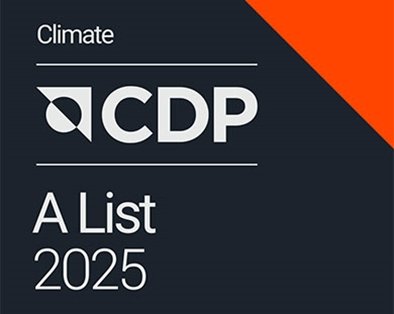For those of us committed to energy reduction the global agreement at the Cop 21 Paris Climate Conference last week to limit global warming to below 2 degrees was a great Christmas present to the world.
The Mobile Carbon Impact Report, published today, reveals that my industry, telecommunications, is playing a major role in ushering in that change. In Europe and the USA the use of mobile is delivering an annual carbon saving in excess of 180 million tonnes.
That is greater than the total annual emissions of the Netherlands and approximately five times greater than the global emissions from the operation of mobile networks.
The report was created by the Carbon Trust for the Global e-Sustainability Initiative and was part funded by Vodafone.
The mobile industry is currently saving energy in two ways:
1. Machine-to-Machine applications
The largest savings are in the building and transport sectors where M2M connectivity is helping to reduce energy and fuel use e.g. in New Zealand, Vodafone is helping ASB Bank to collect real-time data on energy consumption in its network of branches to target energy efficiency initiatives. Over three years, these initiatives have enabled the bank to reduce its energy consumption by 23% – equivalent to approximately £1,330,000 – and save over 1,000 tonnes of carbon per year.
2. Smartphones support sustainable lifestyles
A study of 4,000 smartphone users across five countries cited in the report found that many are already using their phone in a way that reduces their personal carbon footprint. Many more are willing to change their behaviour to reduce emissions further. For example: - 84% of car owners surveyed were using satnav apps to plan travel routes more efficiently or to avoid slow moving traffic - Reductions can also come from people using their mobile devices to work or study from home (80%); adopting a single device to replace several other such things as a camera (91%), alarm clock (81%) or music player (74%); and purchasing digital instead of physical products, such as newspapers, music and books (49%).
Perhaps the most exciting area of the report charts how mobile technology will change Christmas in future years.
We are likely to see more people use their mobile phones to control everyday tasks such as cooling and heating. This will give people the power to avoid heating empty homes, a particular problem during the Christmas social season.
Driving is also likely to be more energy efficient. More than half of the car drivers surveyed by the Carbon Trust would consider having a device fitted that would reduce car insurance if they drove in a safer, more environmentally friendly way, four in 10 would consider using a self-driving car and just under half would be more likely to use public transport if they had an app to see precisely when the next service would arrive.
Vodafone is committed to using our technologies to help our customers reduce their carbon emissions by twice the amount that we generate ourselves by 2018. The Mobile Carbon Impact Report shows the ways in which we can achieve that goal.
For further information on Vodafone’s energy and environment programmes please contact Nicki Woodhead on [email protected].

Nicki Woodhead is Senior Environment Manager for Vodafone Group. She has worked in the field of energy and climate change for over 25 years.



























